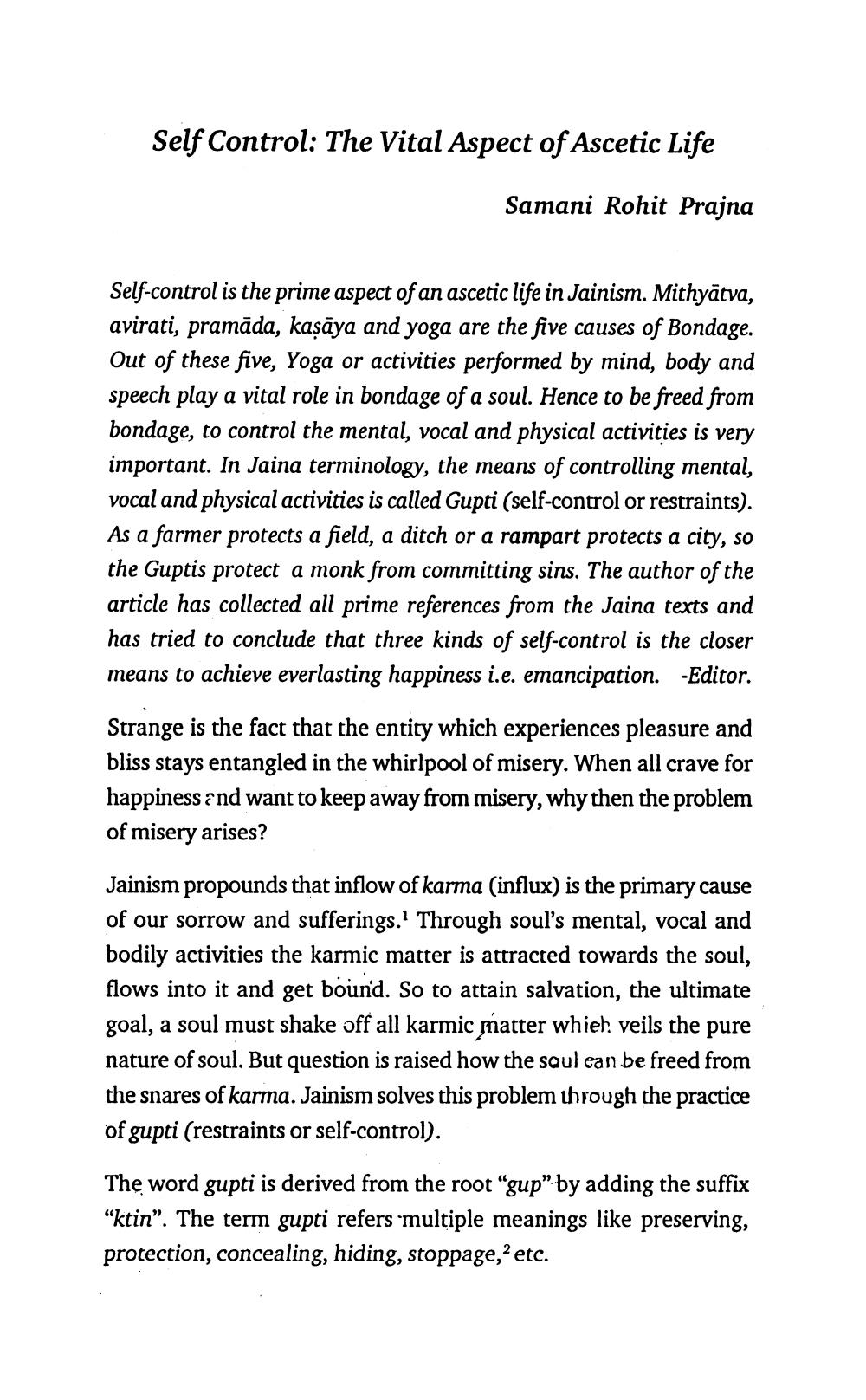________________
Self Control: The Vital Aspect of Ascetic Life
Samani Rohit Prajna
Self-control is the prime aspect of an ascetic life in Jainism. Mithyātva, avirati, pramāda, kasāya and yoga are the five causes of Bondage. Out of these five, Yoga or activities performed by mind, body and speech play a vital role in bondage of a soul. Hence to be freed from bondage, to control the mental, vocal and physical activities is very important. In Jaina terminology, the means of controlling mental, vocal and physical activities is called Gupti (self-control or restraints). As a farmer protects a field, a ditch or a rampart protects a city, so the Guptis protect a monk from committing sins. The author of the article has collected all prime references from the Jaina texts and has tried to conclude that three kinds of self-control is the closer means to achieve everlasting happiness i.e. emancipation. -Editor. Strange is the fact that the entity which experiences pleasure and bliss stays entangled in the whirlpool of misery. When all crave for happiness and want to keep away from misery, why then the problem of misery arises?
Jainism propounds that inflow of karma (influx) is the primary cause of our sorrow and sufferings. Through soul's mental, vocal and bodily activities the karmic matter is attracted towards the soul, flows into it and get bound. So to attain salvation, the ultimate goal, a soul must shake off all karmic matter whieh veils the pure nature of soul. But question is raised how the soul can be freed from the snares of karma. Jainism solves this problem through the practice of gupti (restraints or self-control).
The word gupti is derived from the root “gup" by adding the suffix “ktin”. The term gupti refers multiple meanings like preserving, protection, concealing, hiding, stoppage, etc.




